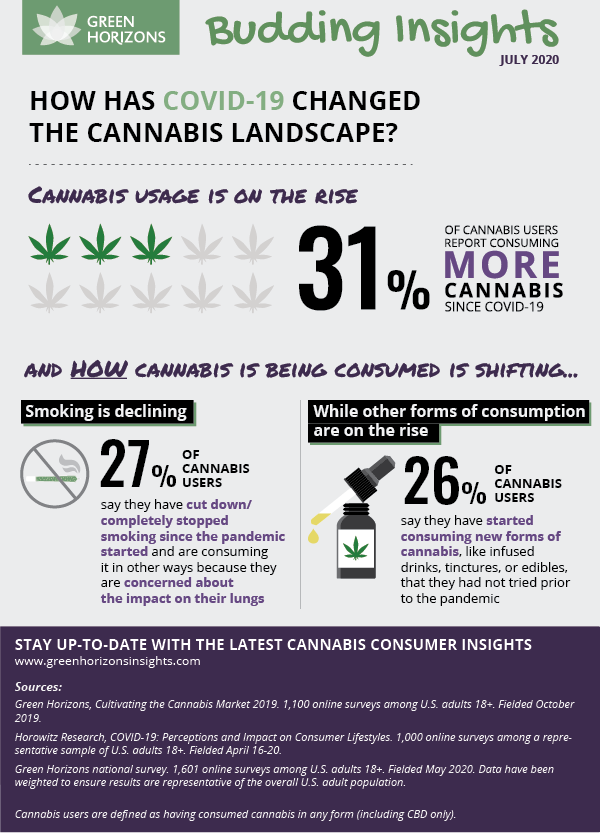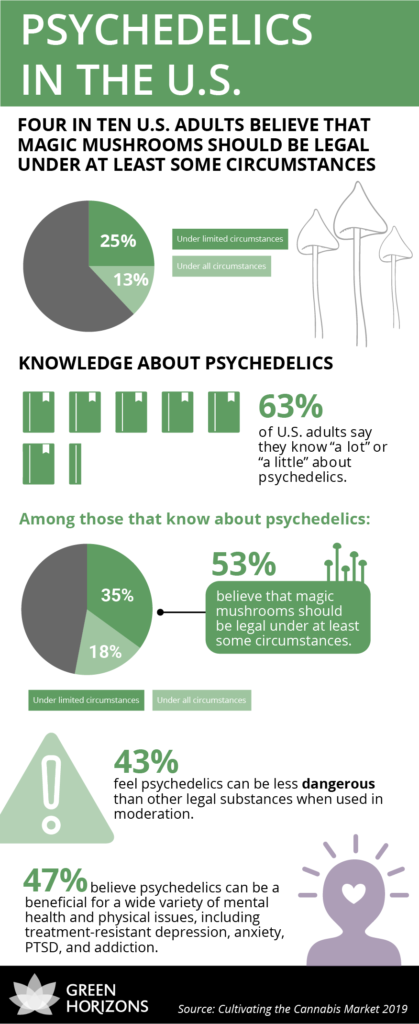In Green Horizons’ benchmark study, Cultivating the Cannabis Market (October 2019), four in ten (39%) U.S. adults 18+ reported using cannabis, with 28% saying they typically use it at least weekly. With COVID-19 having an impact on every aspect of Americans’ lives, we wanted to understand how the pandemic is changing usage.
Join the Green Horizons mailing list
Get the latest insights on cannabis and holistic health delivered straight to your inbox.

As cannabis usage shifts, Green Horizons can help you stay on top of what consumers need and want from their cannabis products.



